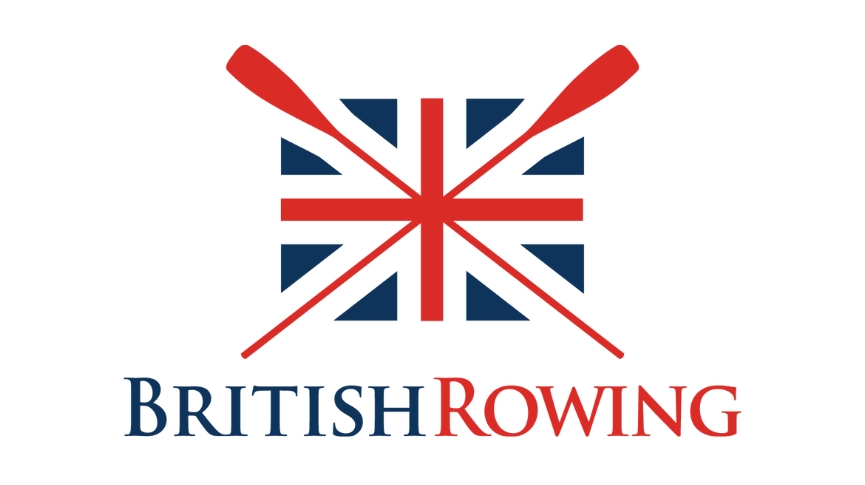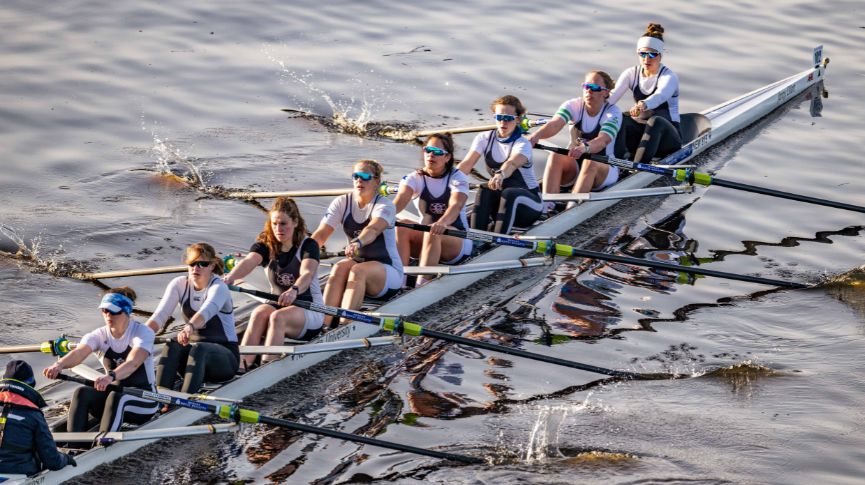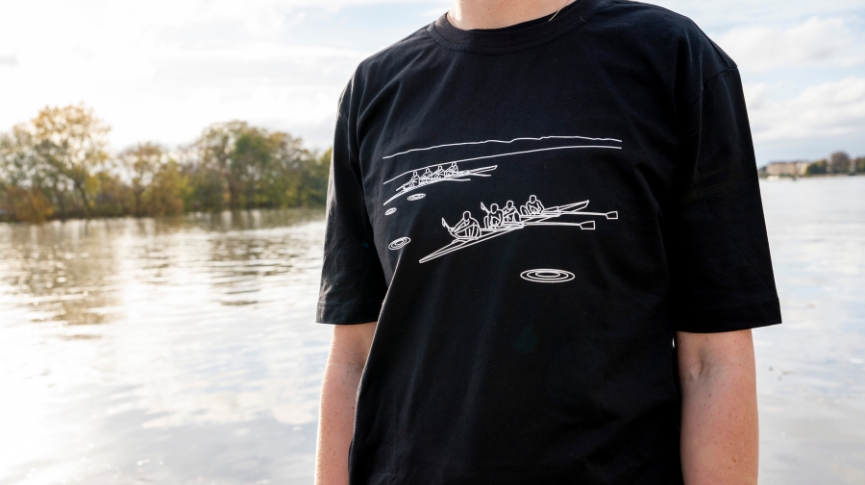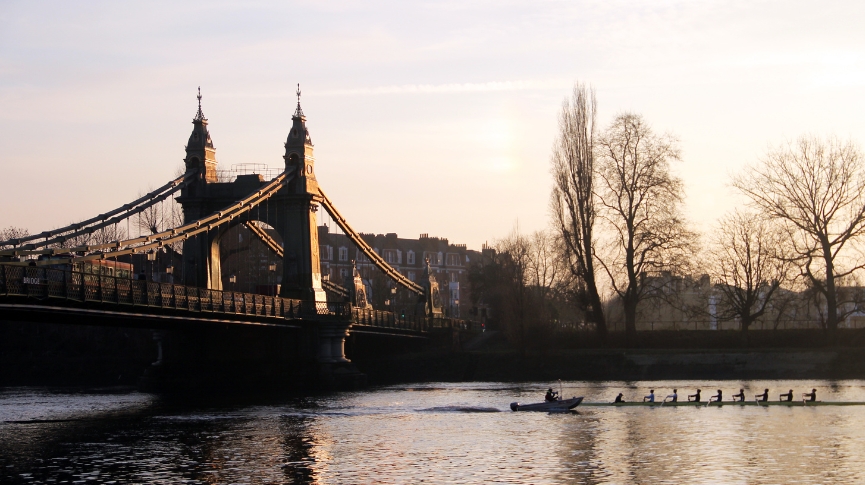“It’s been the best thing I’ve done in terms of professional development”: Shanklin Sandown RC’s Lesley Walters on coach development
Fergus Mainland spoke with the 2024 Talent Development Coach of the Year to hear all about her work with British Rowing’s coach developers

Over the past decade, Lesley Walters has transformed and encouraged the Shanklin Sandown RC’s junior squad to set their sights on claiming notable successes on the national stage and beyond.
Most recently, Lesley has coached Louis Sheasby and Carter Horrix for the last three years, with the crew going unbeaten throughout 2024. Under Lesley’s leadership, the club has been transformed into an inspiring place to become a competitive rower, where everybody across all age categories are supported and encouraged to become the best version of themselves.
Having taught for 37 years, Lesley was well placed to progress into coaching once a back injury led to her moving away from competitive rowing, where she raced for the likes of the University of Sheffield BC and Twickenham RC before returning to her native Isle of Wight.
Lesley’s coaching journey began under the tutelage of Nigel Weir and Rosie Mayglothling. More recently, she has been connected with coach developers Gordon Burton and Tom Causer, who have transformed her thinking when it comes to coaching.
“Gordon was amazing,” explained Lesley.
“His wealth of knowledge with strategy, policy making, and events management. My other mentor Tom, is based in Ireland. I was really supported well by them, because I wanted to do this project for the raising performance levels in the Wessex region, but also I wanted to up my game as a coach.
“Tom was brilliant, because he’s so passionate about aspects of coaching. So when he said to me, ‘What do I want to work on?’ I said, ‘Well, just everything!’ Even though he’s not officially working with me anymore, he still gives me time and still offers time if I want to chat through anything.
“He’s been an absolute brick throughout the whole process. I would choose the bits that I wanted to work on most. I have gone through looking at athletes, relationships with athletes, learning, observation, and feedback, coaching cues, and types of coaching cues. I’ve gone through video analysis, and performance profiling is massive. I’ve worked with him really closely on performance profiling and goal setting. All those things together really upped my game as a coach, but also built probably the best relationships I’ve got with my athletes and I’ve ever had with any cohort of athletes.
“I can’t speak highly enough of the support I’ve had through those two coach developers. Tom was on tap if I needed him, and Gordon challenged me when it came to looking at the strategy of what I was doing and being a really useful sounding board when I was going through what I was trying to achieve. In different ways. They were both amazing.”
Lesley’s coaching journey began as a volunteer, and now she is helping to evolve Shanklin Sandown RC into one of the most exciting clubs on the water. She has been invigorated by the experience of working with her coach developers, who have helped reignite a passion for learning.
“I think we’re all, as coaches, becoming a bit insular with our sport. Tom made me realize that coaching is coaching. Coaching is about people. Coaching is about getting your message across in a different way, in a more effective way, about how to do the job better. I suppose it’s a bit like teaching. I was a PE teacher. That’s my training.
“I hated it when they used to put me on teaching other subjects initially, and then as I got older, I ended up teaching a whole raft of different subjects. It didn’t phase me anymore, because I had the formula, and I think that’s what Tom proved, how important the formula is and the different aspects of the formula.
“Sometimes the formula is different for different people. I’m all about talent development and making sure we can get the best out of our athletes as an identity and so on, but how we can work with our athletes in a really effective way and talk taught me different ways that I can get the best out of individuals.
“For my own pedagogy, I suppose it enlightened my interest in it. He used to send me think articles to read in between our sessions of just research. To be honest, I had done so much research in education. I was fed up with it,” she said with a laugh. “Because it was about rowing and because it was about or an aspect of coaching that I was working on, it was really interesting, and he was quite forthcoming in saying, ‘Oh, you might be interested in this article.’ It really kept me on my toes knowing that I had to also have these regular meetings with my mentors.”
Lesley has a passion for performance profiling, and despite being from a background of badminton, Tom was able to support her with this knowledge area and apply the same thinking to rowing.
“Tom sent me this performance profile document. It was all geared up for Badminton, and I thought, actually, it doesn’t matter what sport it is, it’s all the right thing. I just changed all the bits to what I felt was appropriate.
Across Lesley’s time coaching, there have been some tremendous athletes that she has worked with, and she’s helped shape some wonderful individuals. She’s coached undefeated crews and helped athletes race at the GB/France match, but she is proud to see that people are now sitting up and taking notice of the club when they perform at national events. An amusing anecdote from the British Rowing Club Championships sums this up perfectly.
“We’re a coastal club trying to compete against the big clubs. Every year at the British Championships, people kept getting our name wrong. It was every year for six or seven years. Then a couple of years ago, the commentary team were just being really complimentary about the club, and I remember thinking, well, not only have they got the name pronounced correctly, they’re actually now talking about us in a really complimentary way.
“I think that’s probably the moment you think, you know, we’ve stood up there. We’re from a tiny coastal club on the Isle of Wight, middle of nowhere, and you haven’t got access to the river. We have a four hour round journey just to get there. We’ve done all this, and we’ve come away with two gold medals and a bronze. The medals weren’t the memory. It’s more the fact that, as a club, we’ve had lots of representation, loads of personal bests, and it was almost like, ‘Yeah, we’ve done it. We’ve achieved what we set out to do,’ and now people know who we are.”





